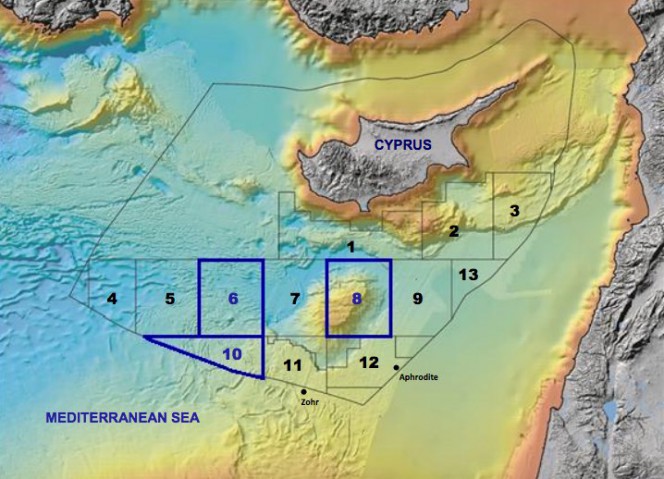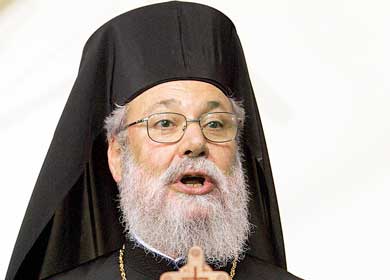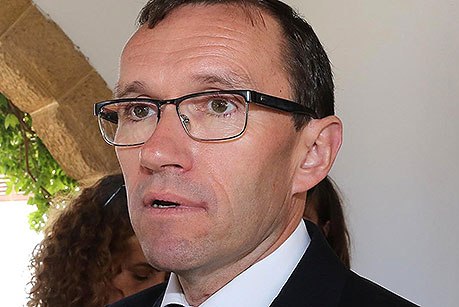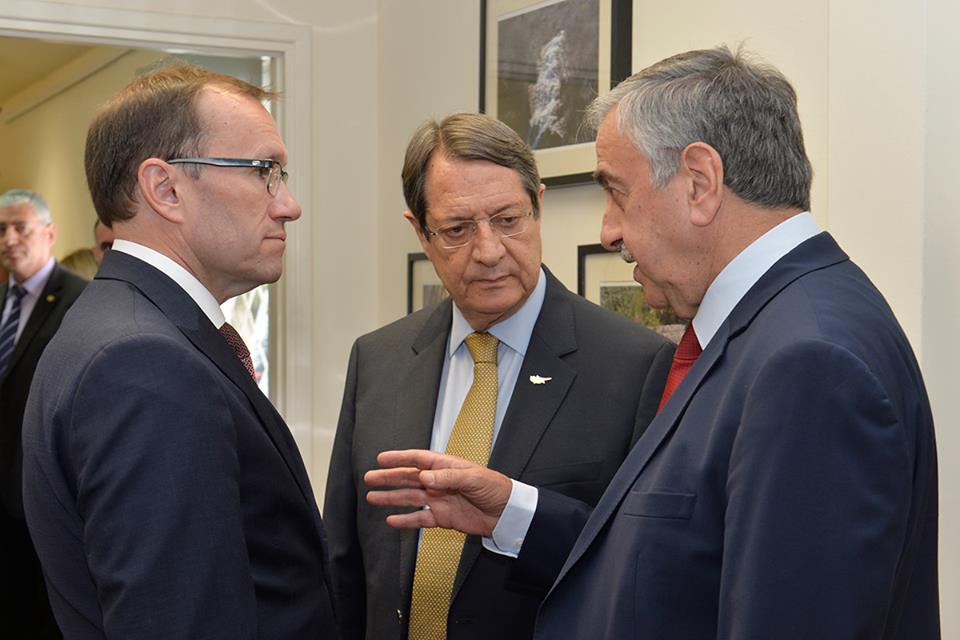The Cyprus Talks are in danger of total collapse following an admission by Espen Barth Eide the Special Adviser of the UN Secretary-General on Cyprus, that the two Cypriot leaders have been “unable to find common ground.”
A statement issued by the UN in Nicosia earlier today said despite the envoy’s intensive efforts over the past two weeks, it had not been possible to break the deadlock, prompting Mr Eide to conclude “there is no basis for continuing this shuttle diplomacy.” In light of developments, the envoy will meet with UN Secretary-General António Guterres to discuss how to proceed.
The dismal news is in marked contrast to the spirit in which the current round of Talks commenced back in May 2015. After walking away from the negotiations, Greek Cypriot leader Nicos Anastasiades returned to the table following the election of Mustafa Akıncı – known for his pro-Cyprus unification views – as TRNC President.
The positive atmosphere and relations between the two Cypriot leaders was palpable; many observers were convinced the conditions were ripe for Mr Akıncı and Mr Anastasiades to make the necessary compromises needed to reach a permanent political solution that has eluded their predecessors over the past five decades. Joint walkabouts in the divided capital and celebratory Christmas/New Year messages seemed to herald a new beginning for Cypriots. However, the Talks have hit a series of major stumbling blocks of late.
While progress was made in a variety of areas, important differences also emerged on core issues such as power-sharing, territory and security, over the past 8 months. Summits in Switzerland in November 2016 and January of this year that were designed to bridge the gaps, which were supported by the UN, EU and three Guarantor Powers Britain, Turkey and Greece, came to nothing.
New incidents on the island, including a controversial decision in February by the Greek Cypriot Parliament to introduce an annual Enosis (‘union with Greece’) Day
in schools, and the South Cyprus authorities’ unilateral resumption of offshore gas explorations despite warnings by the Turkish side this would not be tolerated, has added to the deteriorating climate.

The Talks have been ongoing since the power-sharing Republic of Cyprus collapsed over 50 years ago, after Greek Cypriots launched a bloody coup and seized power in December 1963. The positions of the two sides became more entrenched following the 1974 War, which led to the division of the island.
Decades of negotiations have achieved little. In 2003, the Turkish Cypriot side took a surprise decision to open the borders, prompting the Greek Cypriot side to reciprocate. A year later a UN-backed peace plan to unite the island was put to a simultaneous referendum. Three quarters of Greek Cypriots rejected it, while 65% of Turkish Cypriots voted in favour of the deal. Bizarrely, it was the Greek Cypriots who were rewarded by being admitted into the European Union while Turkish Cypriots remain internationally isolated.

Next year South Cyprus will hold Presidential Elections. It is widely feared that in a bid to be re-elected Mr Anastasiades is adopting more nationalistic positions to counter increasing pressure from the influential Cyprus Greek Orthodox Church and most opposition parties in the South, who remain staunchly anti-solution. This broad coalition, which includes far and centre right parties (ELAM and DIKO), as well as the Greens and social democrats (EDEK), is not in favour of the concessions needed for a united Cyprus, preferring to hold out until conditions will allow Greek Cypriot majority rule devoid of a bi-zonal split based on ethnic lines – a situation that is unlikely to ever prevail.
Mr Anastasiades’ unwillingness to conclude the deal in spite of the huge progress made in 2015 and 2016 has left his Turkish Cypriot counterpart increasingly frustrated. It’s also left the UN’s Cyprus envoy with an impossible job: Mr Eide is unable to exert any pressure on the two Cypriot leaders to meet let alone reach a resolution.
The UN Special Envoy has tried in vain to find a format acceptable to both sides to hold a new round of peace talks in Geneva next month. It is understood Greek Cypriots wanted the conference to focus on the Guarantees and security arrangements, while Turkish Cypriots were against piecemeal discussions.

The full text of Mr Eide’s statement, issued by the UN in Nicosia earlier today, reads as follows:
“Over the last nine days, following the 17 May meeting of the Greek Cypriot leader, Mr. Nicos Anastasiades, and the Turkish Cypriot leader, Mr. Mustafa Akıncı, I have been engaged in active shuttle diplomacy between the two sides as requested by the leaders.
“As both leaders have publicly expressed their desire to reconvene the Conference on Cyprus and to finalise all outstanding issues in Geneva, our sole focus has been to agree the modalities by which this can be achieved. Unfortunately, despite serious efforts to overcome their differences regarding the modalities for meeting in Geneva, the leaders were unable to find common ground. Without a prospect for common ground, there is no basis for continuing this shuttle diplomacy.
“This morning, I have informed Mr. Akıncı and Mr. Anastasiades accordingly. Subsequently, I briefed the Ambassadors of the five Permanent Members of the Security Council in a joint meeting. I will now inform the Secretary-General and seek his advice on the way forward.”




